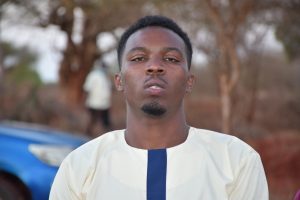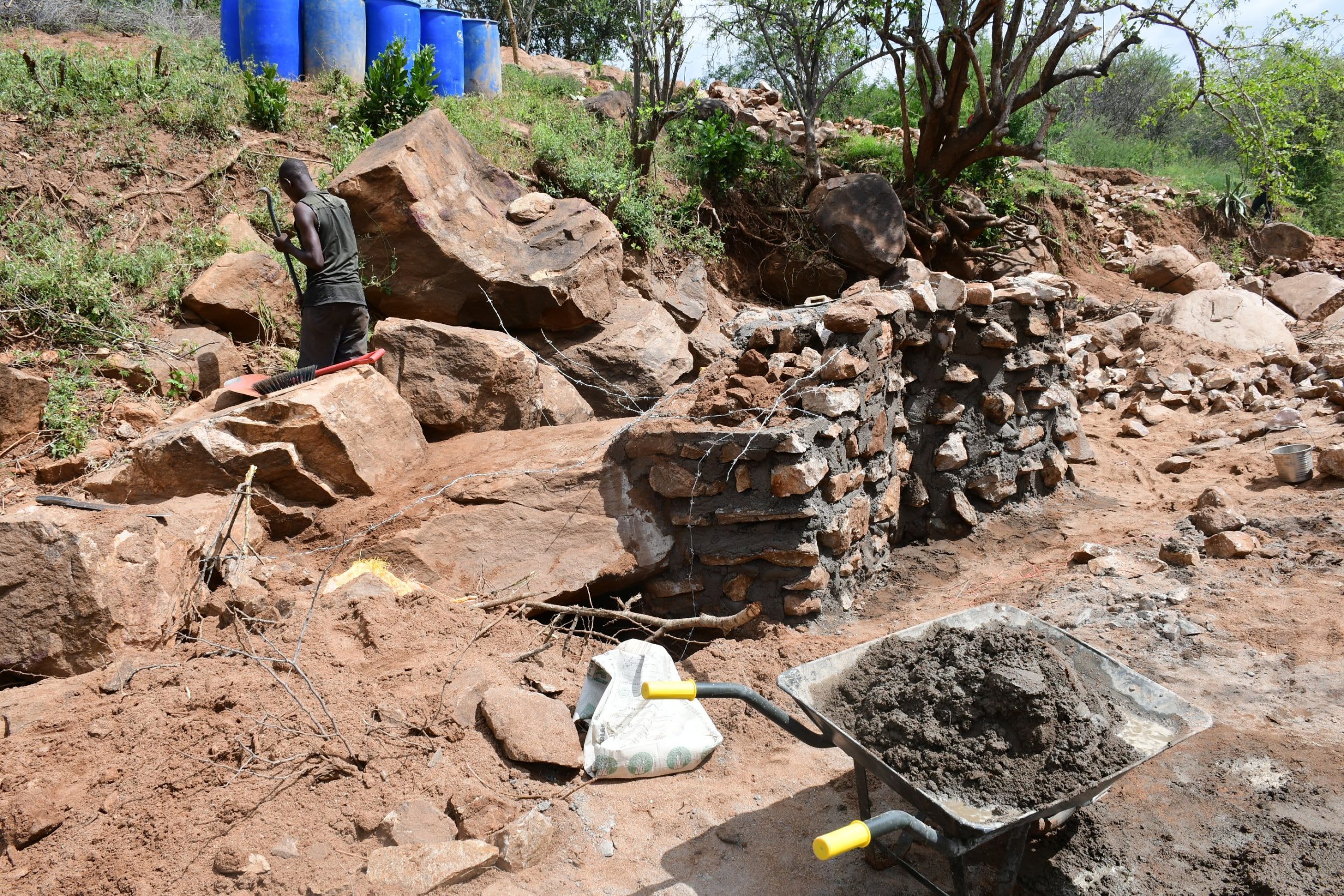The 300 community members that call Museesu home struggle daily to access sufficient water to meet their needs. Finding and collecting enough water is exhausting, leaving them in pain and overwhelmed.
"During most evenings and weekends, I have to help my mother in fetching water, which is exacting and time-consuming. My leg muscles ache after each journey, and my mother massages them with warm water before I go to sleep. However, I have to walk to school the following day while carrying my 2-liter jerrycan of water, and the pain on my legs re-emerges," said 11-year-old Evalyn M. (seen below).

"I also often develop ringworms because I cannot conduct regular personal hygiene, which reduces my self-esteem and confidence in school and when playing with my friends. Going to the waterpoint by myself also scares me because there are several snakes in the area, and I could easily be bitten by one. I hope to get a nearby source of clean and sufficient water to prevent the aches and easily draw water for use at home," concluded Evalyn, shown collecting water below.

The community members rely on scoop holes in the local riverbed as their primary water source, but they present significant challenges. They are tiring to reach and filled with contaminated and salty water unfit for human consumption.
"The water point is located several (6) kilometers (3.7 miles) away, and fetching water and going back home leaves the residents exhausted and unable to focus fully on their daily activities such as farming. The scoop holes are open and unprotected. The water is contaminated and [salty]. You also can find animals excreting near them. Due to the high level of contamination, residents often contract water-related illnesses such as typhoid, amoeba, and dysentery," shared field officer Alex Koech.
"Despite the daily exhausting journey in search of water, I have to bear with the salty and contaminated water from the scoop holes, which causes stomach upsets and dysentery. I have to part with my little income when seeking treatment," said 49-year-old farmer Anastasia Kabwere, shown below collecting water.

But water-related illnesses are not the only challenge. Like Evalyn, Anastasia quite literally feels the pain of collecting water in her body every day.
"I have developed back aches because I have to carry water on my back each morning. Although the pain cools down after some rest, it reappears the following day. I have to bear with the pain because I have [to] get water for my family. A nearby water point will take my pain away, and I can even save up to purchase a donkey to carry more water," Anastasia continued.

Installing this water source will enable people like Anastasia and Evalyn, who live in Museesu, to focus on improving their daily lives instead of letting the water crisis steal their strength, health, and futures.
Helping to solve the water crisis in this community will take a multi-faceted system. It requires the collaboration of the protected dug well and a sand dam. They will work together to create a sustainable water source that will serve this community for years to come.
The Proposed Solution, Determined Together...
At The Water Project, everyone has a part in conversations and solutions. We operate in transparency, believing it benefits everyone. We expect reliability from one another as well as our water solutions. Everyone involved makes this possible through hard work and dedication.
In a joint discovery process, community members determine their most advantageous water solution alongside our technical experts. Read more specifics about this solution on the What We're Building tab of this project page. Then, community members lend their support by collecting needed construction materials (sometimes for months ahead of time!), providing labor alongside our artisans, sheltering and feeding the builders, and supplying additional resources.
Water Access for Everyone
This water project is one piece in a large puzzle. In Kenya, Sierra Leone, and Uganda, we're working toward complete coverage of reliable, maintained water sources that guarantee public access now and in the future within a 30-minute round trip for each community, household, school, and health center. One day, we hope to report that this has been achieved!
Training on Health, Hygiene & More
With the community's input, we've identified topics where training will increase positive health outcomes at personal, household, and community levels. We'll coordinate with them to find the best training date. Some examples of what we train communities on are:
- Improved hygiene, health, and sanitation habits
- Safe water handling, storage & treatment
- Disease prevention and proper handwashing
- Income-generation
- Community leadership, governance, & election of a water committee
- Operation and maintenance of the water point
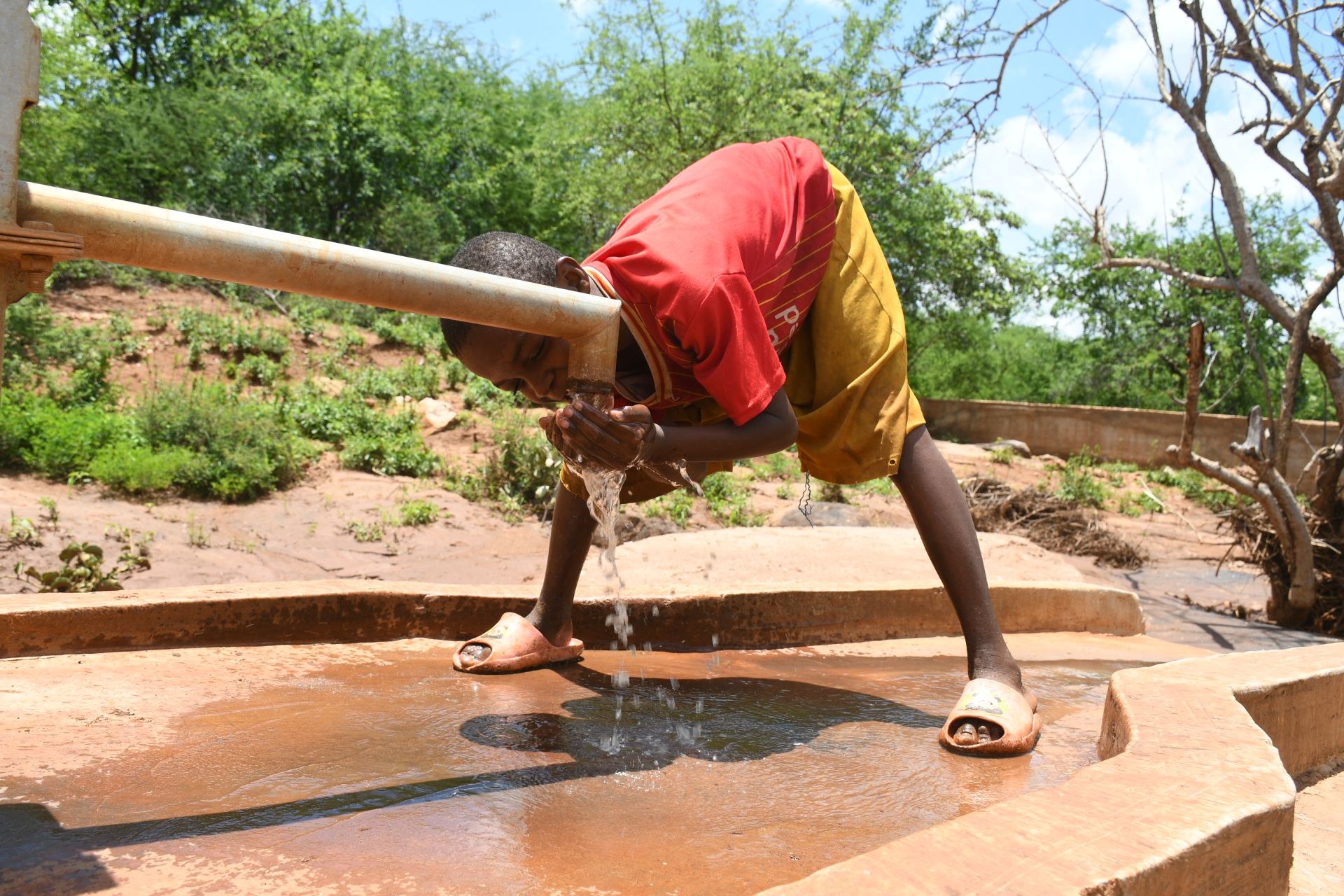
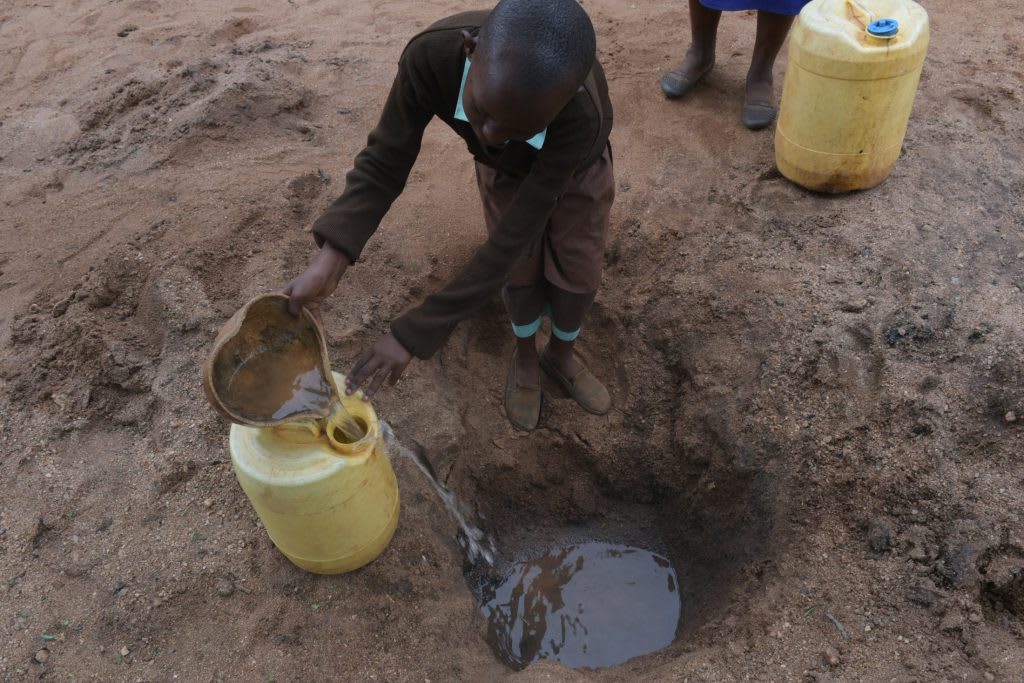
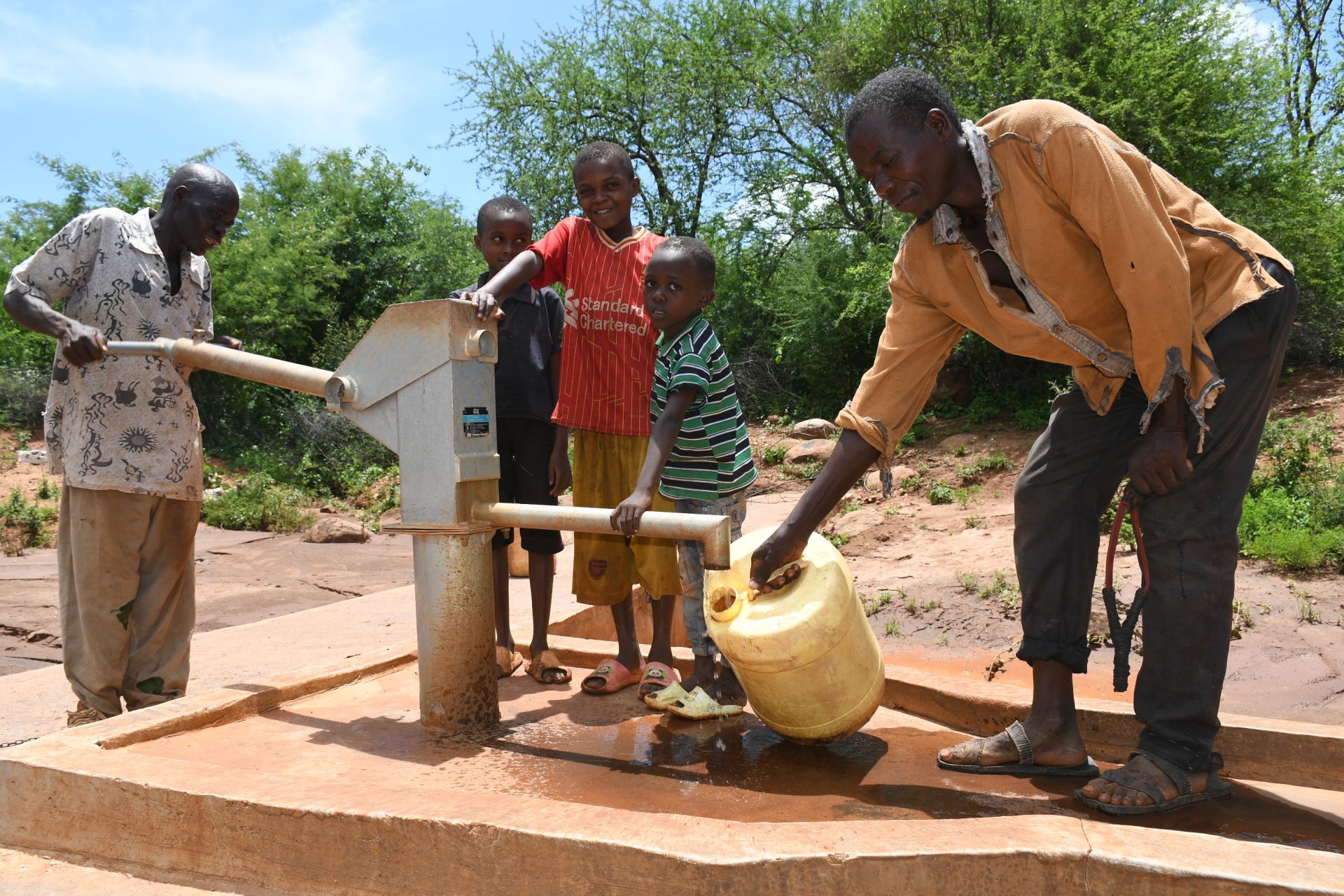
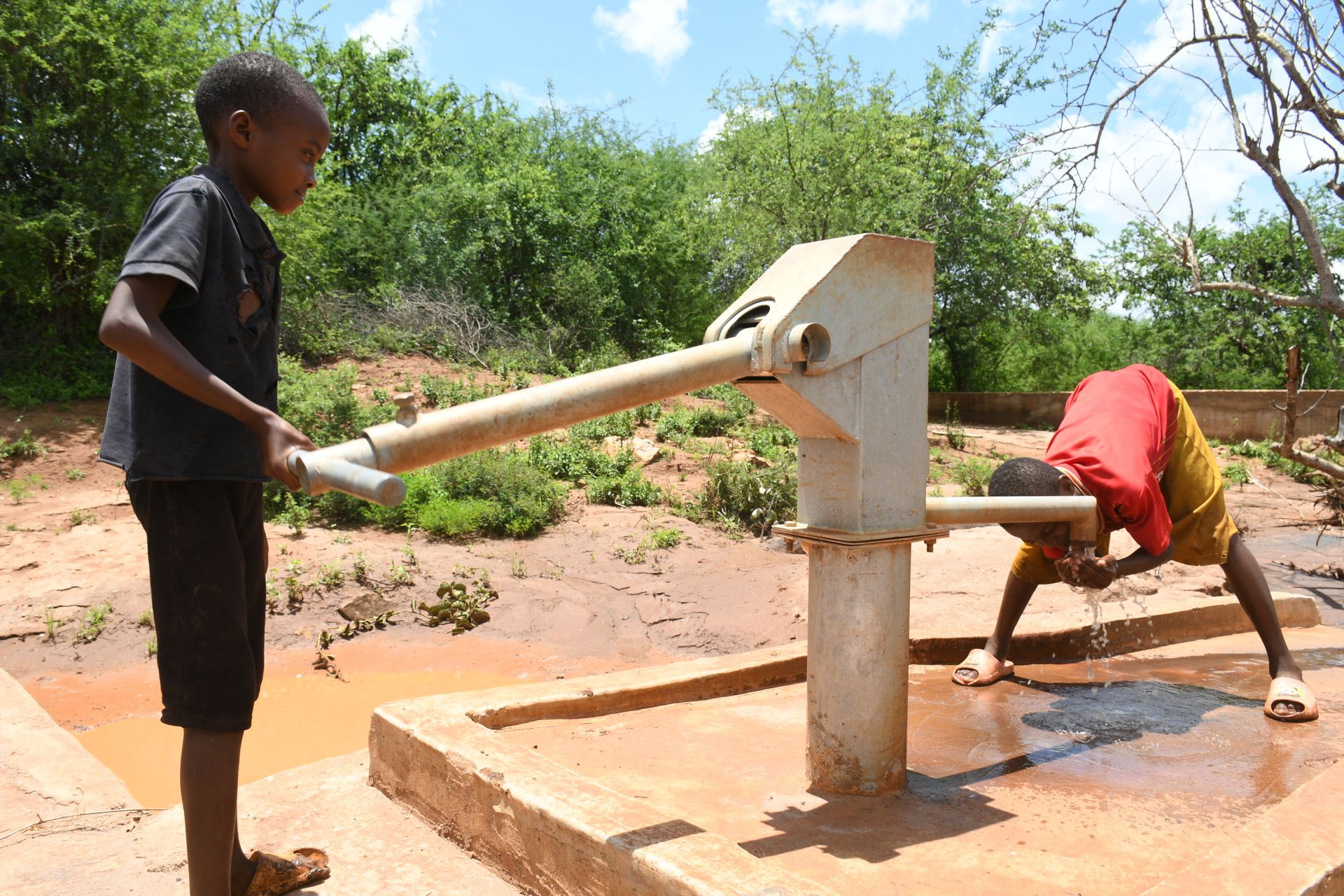
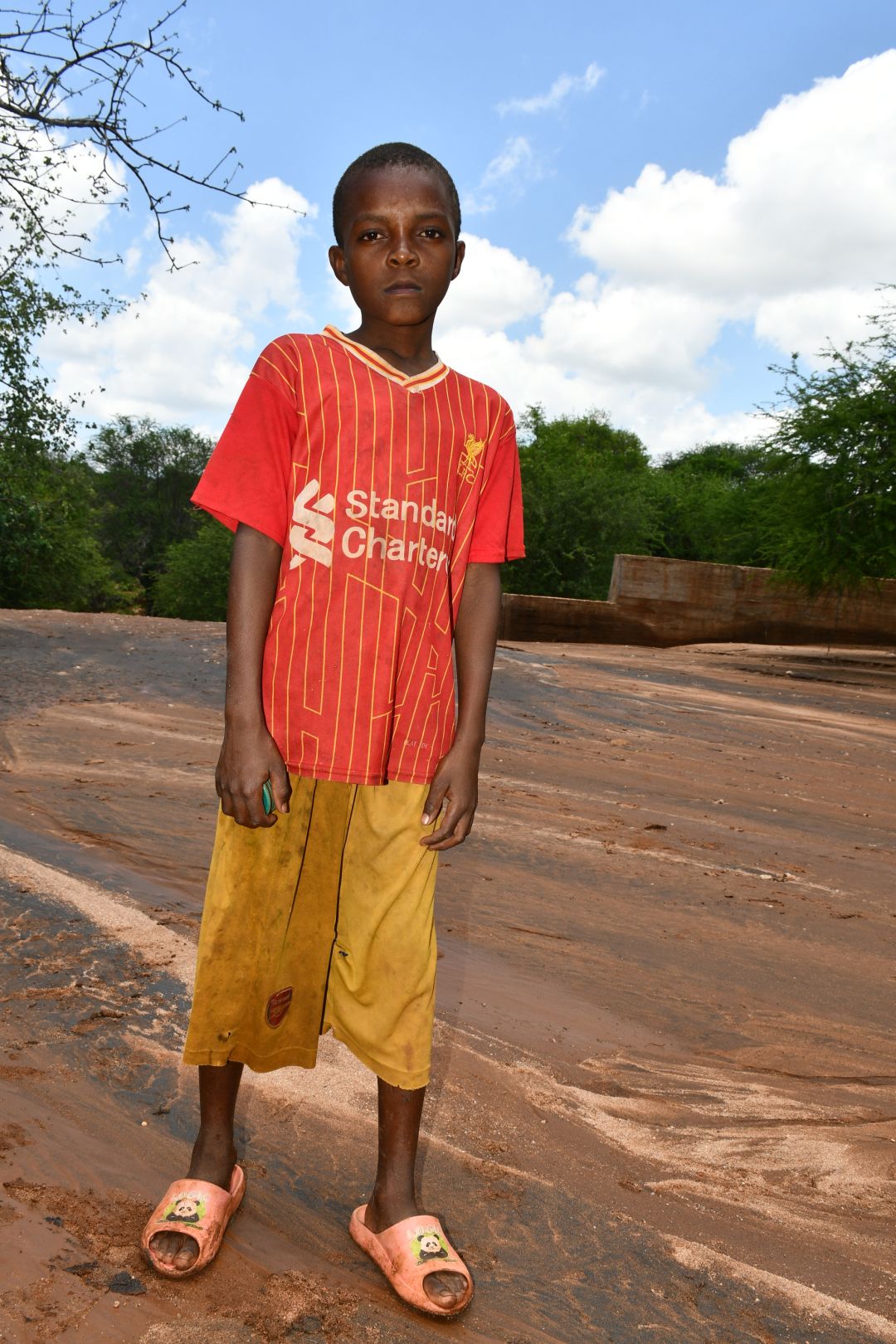

 Protected Dug Well
Protected Dug Well
 Rehabilitation Project
Rehabilitation Project










